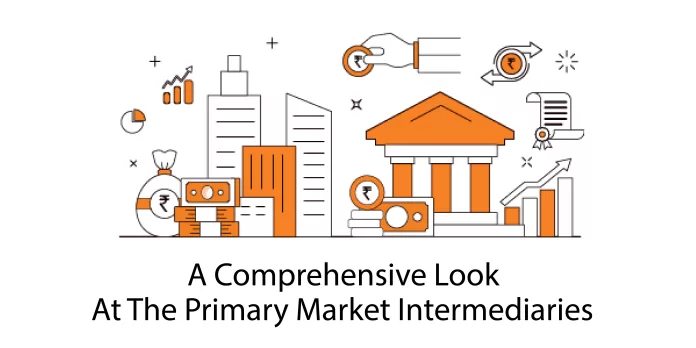The primary market plays a crucial role in the financial ecosystem, serving as the platform for companies and governments to raise capital through the issuance of equity and debt securities. In this dynamic landscape, various intermediaries collaborate to facilitate the smooth execution of these primary offerings. From advising on pricing strategies to ensuring compliance with regulatory frameworks, these intermediaries contribute significantly to the success of the primary market.
Merchant Bankers: Guiding the Issuer Through the Journey
Merchant bankers are pivotal entities that provide a spectrum of services linked to the management of primary securities issues. Their responsibilities encompass advising issuers on pricing strategies, preparing issue documents, applying for securities listing, advertising the issue, and overseeing the entire issuance process. Merchant bankers play a critical role in shaping the success of a securities offering.
Book Running Lead Managers (BRLM): Orchestrating the Symphony
In a multi-merchant banker scenario, the Book Running Lead Manager takes centre stage. Responsible for due diligence, drafting prospectuses, ensuring compliance with regulatory requirements, and marketing the issue, the BRLM plays a pivotal role in managing the intricate facets of a securities offering. Post-issue, BRLMs finalize allotments, manage escrow accounts, and coordinate activities with other intermediaries.
Registrar and Transfer Agents (RTA): Gatekeepers of Information
Registrars maintain meticulous records of investor applications and funds received during a primary issue. They aid in determining the basis of allotment and handle the processing and dispatching of allotment letters and refund orders. Transfer agents manage securities holdings, overseeing transfer and redemption processes. Both entities play a crucial role in maintaining transparency and ensuring smooth post-allotment operations.
Know: Exploring IPOs: Beyond Financials for Informed Investments
Underwriters: Safeguarding the Offering
Underwriters provide a safety net to issuers by committing to subscribe to securities in case of a shortfall in public subscription. In return, they receive underwriting commissions. The agreement between the issuer and underwriters outlines the obligations and responsibilities of each party, ensuring the financial security of the offering.
Bankers to the Issue: Custodians of Funds
Banks appointed as Bankers to the Issue handle the inflow and outflow of funds related to the securities offering. They collect applications and funds from investors, facilitate refunds to unsuccessful applicants, and maintain daily records of transactions. Their role is integral to the financial logistics of the primary market.
Brokers to the Issue: Bridging Investors and Issuers
Stockbrokers, acting as Brokers to the Issue, serve as intermediaries connecting potential investors with the issuer. They play a pivotal role in procuring subscriptions and ensuring a seamless flow of capital into the primary market.
Depositories and Depository Participants: Embracing Digital Transformation
Depositories hold securities in electronic form, facilitating efficient processing of transactions through book entry. Depository Participants (DPs) act as intermediaries between the depository and investors, offering depository services and managing the dematerialization process.
Debenture Trustees: Guardians of Debenture Holder Interests
Appointed before a debt securities issue, debenture trustees safeguard the interests of debenture holders. They ensure due diligence, assess the sufficiency of secured assets, and convene meetings when necessary, ensuring transparency and accountability.
Portfolio Managers: Tailoring Investment Strategies
Portfolio managers provide advisory services and manage investment portfolios on behalf of clients. They can be discretionary or non-discretionary, tailoring their approach based on client needs and preferences.
Primary Dealers: Facilitating Government Securities Transactions
Primary dealers, authorised by the RBI, act as underwriters for government securities. They subscribe to securities in RBI auctions, underpinning the government’s borrowing program and enhancing liquidity in the secondary market.
Conclusion
The primary market’s vitality is sustained by a network of skilled intermediaries, each playing a unique role in ensuring the success of equity and debt securities offerings. From financial advisors to custodians of investor funds, these entities contribute to the integrity, transparency, and efficiency of the primary market, thereby fostering a robust financial ecosystem. Each intermediary’s adherence to SEBI regulations and codes of conduct is paramount in maintaining the market’s integrity and protecting the interests of investors and issuers alike.


